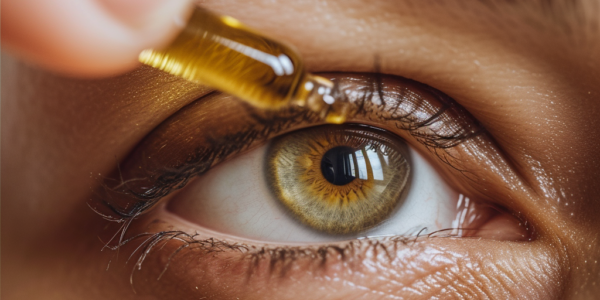Valacyclovir Shows Promise in Treating Herpes Zoster Ophthalmicus, Study Finds
Recent research presented at the American Academy of Ophthalmology highlights the benefits of valacyclovir in treating herpes zoster ophthalmicus (HZO). Led by Dr. Elisabeth Cohen, the study found that valacyclovir significantly reduces the risk of new or worsening eye disease and decreases the need for neuropathic pain medications. These findings support the use of valacyclovir as a key treatment option for improving the quality of life in HZO patients.
Breakthrough Discovery of UBAP1L Gene Offers Hope for Inherited Retinal Diseases
Scientists at the NIH have identified the UBAP1L gene linked to inherited retinal diseases, enhancing understanding and paving the way for genetic testing and targeted therapies. This breakthrough offers hope for the millions affected by retinal dystrophies, highlighting the importance of genetic evaluation in developing effective treatments.
Robot-Controlled Radiotherapy Shows Promise in Treating Age-Related Macular Degeneration
Robot-controlled radiotherapy shows promising results in reducing the number of injections needed for patients with age-related macular degeneration (AMD). With potential cost savings and improved patient experience, this innovative approach could revolutionize the treatment of this prevalent eye disease, offering hope for better outcomes and enhanced quality of life.
Groundbreaking Study Shows Promise in Restoring Sight in Mice
Groundbreaking study in mice shows potential for restoring sight in individuals with damaged optic nerves, offering hope for treating conditions like glaucoma. Experts emphasize the need for further research to validate the approach’s effectiveness and ascertain its potential in treating blindness in humans. The study’s implications extend beyond ophthalmology, offering hope for individuals grappling with vision impairment and heralding a potential breakthrough in the field of vision restoration.
University of Auckland researchers testing castor oil as potential treatment for dry-eye disease
University of Auckland researchers are testing the application of castor oil to treat dry-eye disease with promising results so far. The trial of castor oil as a potential safe and natural treatment for dry-eye disease is being conducted following a successful pilot study. With dry-eye disease affecting a significant portion of the population, the current trial aims to provide a long-term solution for patients grappling with uncomfortable symptoms. The use of cold-pressed castor oil in a unique application on the eyelids has shown measurable improvements in symptoms, leading to a more extensive study to generate robust scientific evidence for clinicians.
Study Links Outdoor Artificial Light at Night to Increased Risk of Wet Age-Related Macular Degeneration
A recent study has suggested that higher levels of outdoor artificial light at night may be linked to an increased risk of developing wet age-related macular degeneration (AMD). The study, which utilized nationwide population-based data in South Korea, found that…






